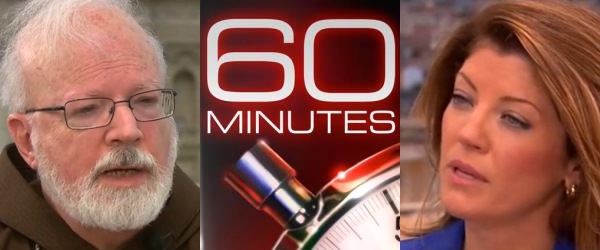
Boston Cardinal O'Malley accommodates CBS' Norah O’Donnell on 60 Minutes
It was only a couple years ago that CBS' 60 Minutes fêted Ireland's Archbishop Diarmuid Martin as he took the Church to task over decades-old abuse claims in Ireland. Indeed, 60 Minutes has a long and storied record of outright hostility against the Catholic Church.
So we were surprised that Archbishop of Boston's Cardinal Seán O'Malley agreed to appear on 60 Minutes and assist them in once again rehashing the sex abuse story and hammer the Church.
And it was a further surprise to see Cardinal O'Malley agree with host Norah O'Donnell that Diocese of Kansas City-St. Joseph Bishop Robert W. Finn should be expelled over his alleged mishandling of a priest later convicted of child pornography. In two previous posts (1, 2), we noted that the Finn case might be among the most misreported stories of the entire Church abuse narrative, and we highly suspect that O'Malley himself is not very much aware of the particulars of this distorted tragedy.
We now wonder how O'Malley's appearance could have possibly fulfilled his role of spreading the Gospel.
Great at handling the sex abuse issue? Really?
While the media has showered O'Malley with praise for his management of sex abuse cases, we have actually been troubled with the way he has handled cases in Boston by paying sizable sums to settle questionable claims.
In the spring of 2012, O'Malley's archdiocese paid out large settlements related to accusations of abuse against two priests. However, as we carefully chronicled at the time, there is substantial reason to believe that the payments were not justified.
Both accused priests were long ago dead, neither man had even a hint of impropriety when they were alive, and these were the only claims ever made against them. The archdiocese's payoffs understandably infuriated the friends and families of both tarnished priests.
60 Minutes not interested in O'Malley's questionable financial management

It pays to work for Cardinal O'Malley!
As the Boston Herald has repeatedly reported, and as local watchdog Boston Catholic Insider (BCI) has often chronicled, under O'Malley's leadership, salaries for lay leadership in the Archdiocese of Boston have ballooned to such astronomical levels that many believe they are outright scandalous.
Consider:
- In 2012, total compensation for the superintendent of the archdiocese's schools, Mary Grassa O'Neill, topped a whopping $361,000; (Meanwhile, the superintendent of Boston Public Schools earned far less while supervising over 42% more students than the archdiocese serves.);
- The top archdiocesan lawyer, Beirne Lovely, raked in $326,169;
- Archdiocesan "Secretary for Media and Public Affairs," Terrence Donilon, took home total compensation of over $208,000. (It is unclear to us what this man actually does for such a hefty pay.); and
- The archdiocese's "Secretary for Institutional Advancement" (whatever that means), Kathleen Driscoll, grossed a sweet $298,327.
Most notably, between 2006 and 2011, O'Malley cut 50 jobs from the archdiocesan staff but still somehow managed to increase the payroll by $1 million.
Oh, yeah. One other thing: As of 2013, the archdiocese was saddled with an astronomical $137 million in debt, all while recently increasing its Management and Overhead expenses by 71% but still reducing pastoral spending by 27%, according to BCI.
So the lesson here is that if a Church official is willing to criticize the Church over the topic of sex abuse, the media will fête him as a media darling no matter what he has actually done as a Church official.
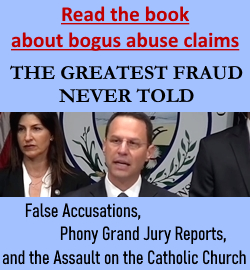

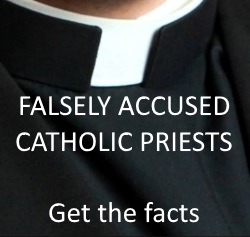
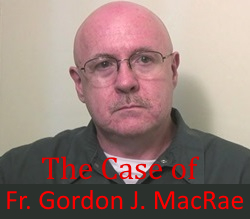
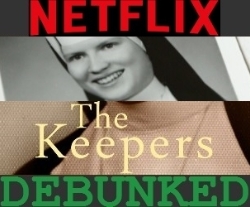
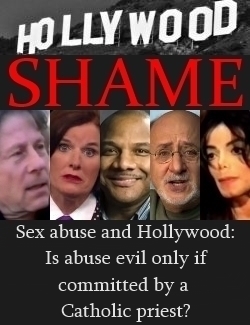
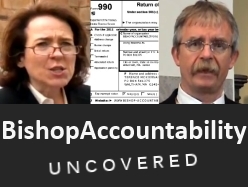
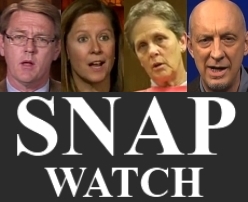
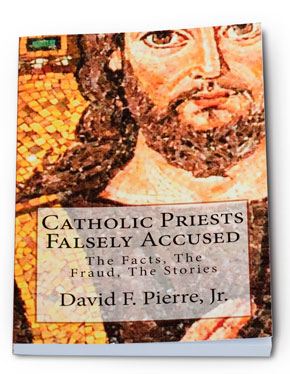
Any job openings in Boston?
Bishop Finn is a lying, son of a bitch.
Nope. Mistaken, inept, naive, a bit elitist, yes. But a liar…..nope.
Following up on thoughts I put up on the Kansas-City thread 2 articles back, I think we are seeing a papacy that is going to try to bring American political trends of the past 50 years into play within the Church itself, certainly in the United States if not also other parts of the Church.
One historical element that occurs to me is the distinction between Athenian democracy and the model developed for the Republic of Venice. The institution we call Athenian democracy – anchored in a small city-state where all the citizens could participate directly – was relatively short-lived but retained a place in a vision of democracy that was preserved in the West. The Republic of Venice – which lasted for well over a millennium (until Napoleon abolished it in his heyday) – was a far more complex and layered institution that was itself composed of a myriad of sub-institutions, all of which worked to limit the power of the Doge. (A glance at even the relevant Wiki article will give you a sense of just how layered authority was in the Venetian Republic.)
It seems to me that the American Framers had taken more of their Constitutional plans from the Republic of Venice than from the Athenian model.
But starting in the post-Civil War period, American political thought began to reflect a more Athenian approach: as early as 1885 a young Woodrow Wilson was referring to the “horse and buggy” Constitution of 1787 and as the Progressive impulse developed over the next 30 or 40 years various elements of the 1787 Constitution were removed in favor of what was touted as being more ‘democratic’ in that Athenian ‘popular democracy’ sort of way. This was partially the result of homegrown American dynamics and partially the result of the influence of i) Bismarck’s nascent ‘welfare state’ being developed (though hardly for Democratic purposes) in the newly-declared German Empire and ii) the intensifying strength of Socialism as a political ideal.
The Church, meanwhile, had long been influenced – I think – by the Venetian model: as the Venetians kept layering more levels of authority to curb the untrammeled power of the Doge, so too the Church (contrary to current cartoonish conceptions of the Church’s governance) developed various layers of authority to counter and temper the power of the Pope.
As American governance has morphed throughout the 20th century into what is essentially a government-heavy model that masks itself as more ‘democratic’ (in the Athenian sense) but has actually mutated into something resembling Soviet-style governance, the Church has retained far more of the Venetian Republic’s insight and structure.
And yet the current Pope seems bent on introducing contemporary American political praxis into the Church (garnering in the process the plaudits of the dominant American ‘liberal’ or ‘progressive’ elites – who, as we recall, play a strong role behind the scenes in the Stampede).
Additionally, throughout the later 19th century and into the mid-20th, American hierarchs and clergy had been striving mightily to counter dominant American Protestant thinking by making the case that Catholicism was compatible with American democracy (neglecting to factor in – it must be noted – the difference between America’s ideal of the Athenian model and the far more government-heavy model embraced by Progressivism). Thus John Courtney Murray, a noted Jesuit thinker, worked to effect such a reconciliation or combination of American democracy and Catholicism, and saw his work apparently vindicated with the election of the first Catholic, JFK, to the presidency.
But there were still strong elements in Rome that worked on the Venetian model, and realized vividly the dangers of a ‘popular democracy’ as evidenced in the French Revolution and in the subsequent Russian revolution that established the Soviet system (in the name of ‘the masses’): historically, what began as a politics ostensibly based in the authority and power of the people became some form of regime that ruled over the great mass of the citizenry for – ostensibly – their own good.
Thus when this Pope now seeks to make the Church more “pastoral” and “welcoming” (notice current Vatican avoidance of any term such as ‘liberalizing’ the Church), then ‘conservatives’ in the Vatican may well have their doubts, and grave and serious doubts.
Nor have the Jesuits in the United States failed to continue efforts to somehow blend American democracy and Church governance, even though the ‘democracy’ to which they are trying to adapt the Church has increasingly continued to demonstrate the historical tendency of ostensibly Athenian theory to mutate into some form of government-heavy regime.
But as we saw with that July 1964 meeting in Hyannisport the Jesuits led the way in taking American Catholicism into that dark place where combining politics and the Faith quickly mutated into cooperation with forces and elements contrary to the Faith. (Creating thereby a situation not so different in essence from the problems his fictional Jesuits created for themselves in James Clavell’s mid-1970s novel Shogun.)
These are deep and deeply-troubled waters, and anybody who wants to build a ‘bridge’ over them must face some serious and sobering problems with the very building enterprise itself.
It is equally of interest that this Pope and the current American president share some similarities: both are ‘whiz kids’ who came to great power rather early in their lives (the Pope became a Provincial – the Jesuit equivalent of a Bishop – in his mid-30s, just as Obama catapulted to political power at that same age.
And ‘whiz kids’ have a tendency to ignore sobering problems and push their agendas, dismissing any objections or reservations or doubts as simply ‘bitter-clinging’ or fuddy-duddy ‘conservatism’.
The presumption, of course, being that all change is pure ‘progress’ (without costs or consequences, intended or otherwise) and all doubt is merely resistance to ‘progress’.
TMR also notices Cardinal O’Malley’s almost stunning specific and negative reference to Kansas City Bishop Finn. So overt a reference to the Bishop cannot but have been vetted with papal representatives before it was made.
Given the clouds of doubt that arise around any Stampede-related trials (to say nothing of the fact that so ostensibly horrific an offense was adjudged as a misdemeanor), it is nothing short of very surprising that so simplistic and overt a comment as Cardinal O’Malley’s would be permitted.
But I think there is more to it than that.
The Bishop had come out strongly against homosexuality as something to be celebrated, as in contemporary American cultural doctrine. This has put him to no little extent at odds with the Pope (“who am I to judge?”).
So I would see Cardinal O’Malley’s comment as a dog-whistle to one and all among the hierarchy and the clergy: don’t take strong positions against this and that (and perhaps especially so in the matter of homosexuality).
Bishop Finn’s misdemeanor conviction, of course, provides a handy pretext: ostensibly he is not coming under papal fire because of his doctrinal stand, but rather because of his misdemeanor conviction.
And this comment by Cardinal O’Malley also functions as a dog-whistle to the American progressive and liberal elites whose plaudits and approbation the Pope is seeking in what appears to be a policy combining rapprochement and appeasement.
As I have said, I don’t think that the Pope is going to all this trouble merely to address the Stampede. Bishop Finn may well wind up as an appeasement offering to American ‘liberals’ and ‘progressives’ generally, signaling once again the trademark Jesuit tendency to give much away today in the hope that tomorrow one’s surrenders will yield a more congenial rapprochement.
That approach has worked only fitfully in the historical past, and in the present situation can hardly be expected to succeed in genuinely deepening the Faith in this country.
This is too funny. Do these cahrecters at MR really believe they have the inside scoop?
For the type of traditional Jesuit strategizing I discussed above and on the prior recent threads, there also exists the danger of invertebracy: in order to be diplomatically or strategically ‘flexible’ (or “welcoming” or “pastoral”) one cannot be ‘rigid’ – meaning in practice that one cannot hew to principles too closely; principles are fungible. And persons are expendable – which means Bishop Finn and who-knows-who-else may find themselves offered up in appeasement of the dominant secular powers-that-be in America.
Some readers may recall Paul VI’s October 1965 visit to the US, and John Paul II’s October 1979 visit. There was a sense in both of those papal visits that the Pope had come with something worthwhile to teach and that America (and the U.N. in 1965) had much to learn.
I don’t think that the upcoming papal visit (to Philadelphia and apparently the city of New York) is going to elicit the same sensibility. This pope is coming as a media-ready celebrity (indeed, positioning himself as such).
And also – I think – as a supplicant. By that I mean that he is coming looking to assure the American secular elites that he is simpatico with them. He is looking, as it were, for inclusion in dinner invitation A-lists. He is seeking – as Jesuits have so often done historically – to be ‘clubbable’, as the Brits might say.
He will present himself as something of a teddy-bear and as a leader coming to the secular imperial capital to deal.
Which is ironic since it appears that the half-century of secular-radical (‘liberal’ doesn’t quite capture the reality of things) hegemony is now waning.
And for that matter, the Stampede itself is now past its salad-days.
But he will of course have to bring some gifts and give-aways and, as I said, some heads may well be in the gift-baskets that he proffers, in addition to some doctrinal points. Doctrinal points are going to be fungible and people are going to be expendable, hierarchs included.
Meanwhile we are informed over on Ralph Cipriano’s BigTrial site that Fr. Englehardt has died in a Pennsylvania prison. (He died last Saturday and his family was not informed until almost noon on this past Monday.) How this will impact that State’s higher-court consideration of the Philadelphia cases now under appeal is anybody’s guess but in his own case his death formally takes those courts off the hook.
Publion, the main gist of the pope's inquiry into the Finn situation has to do with one very basic question: Has Bishop Finn's ability to lead and to pastor his flock been compromised?
I was one of the bishop's staunchest defenders, and I still firmly believe….no…..make that I KNOW that at least 6 people were suspicious of Ratigan well before the bishop ever got a single word on the subject. At least 3 of these 6 people qualify as "mandated reporters" under Missouri law. But that's neither here nor there, now. By dismissing the first charge and upholding the second charge, the judge was affirming that Bishop Finn did no wrong until Ratigan thumbed his nose at the restrictions that Finn had placed upon him. The infamous laptop……MOOT. Trusting the word of his vicar general that police had been contacted and declined to investigate…..MOOT. Hearing the vicar's paraphrase of a memo from the high school principal a year earlier and trusting that the issue was resolved…MOOT. The judge decided all of that was irrelevant as it pertained to the bishop. Where the judge drew the line is when, in the face of a renegade priest thumbing his nose at the restrictions Finn had placed on him, in the face of new suspicions surfacing there was more to the Ratigan affair than what was previously known, Bishop Finn chose NOT to call the police.
I tried, but could not find any fault in the judge's reasoning. The judge was fair, and he was right. As a result of this, Bishop Finn has lost his effectiveness to lead. We can argue the points and boldly declare what is right and wrong until the proverbial cows come home, but no matter whose fault it is, Bishop Finn's efforts to lead and pastor have been rendered inneffectual. For that reason alone, he should step down.
‘Ken W’ (the 26th, 601PM) makes solid points. I recall that in previous comments quite a while back I also had concluded that the Bishop was culpable of the mandated-reporting charge and certainly displayed a failure in judgment in the handling of that priest’s case once that cleric demonstrated such intransigence.
My point in comments on this thread, however, is relevant to his conclusion, i.e. that the Bishop “has lost his effectiveness to lead”.
As best I can make out from reports I have read, the Vatican is considering input from persons in the Diocese both pro and con, so there appears to be a difference of opinion as to whether the Bishop’s being guilty of the misdemeanor charge clearly equates among the laity in the Diocese to a loss of effectiveness to lead.
But as the Vatican conducts its consideration of that matter, there are two elements exerting pressure that are of concern for me.
First, the removal of this Bishop on the basis of this conviction fits in too snugly with a long-pursued agenda of the so-called ‘liberal’ and ‘left’ wing of the Church in the US and Western Europe: reduce the role of Bishops and give – it has to be said – ‘power to the people’ (yes, that ‘60s bumper-sticker). But the role of the hierarchy in sustaining the polity and the very identity of the Church is vital; the Church is not an Athenian democracy (especially as the term has mutated in contemporary American politics).
Church polities without a robust hierarchy (which includes all the Protestant polities) have lost their way and their identity and even their Metaplanar or Multiplanar grounding (some may recall that in the Anglican Communion there has been a serious effort to replace the Stations of the Cross with a set of developmental points from some UN development vision). Something similar has happened in many areas within Judaism, resulting for all practical purposes in that profound heritage often being reduced to merely a socio-cultural set of practices and ethnic identity.
The Catholicism that has remained robust throughout the historical storms of two millennia is inextricably interwoven with a hierarchy, and not merely for the socio-cultural presence of hierarchs as ‘iconic’ (and now ‘celebrity’) figures.
In that regard – my second point – the Stampede can clearly be seen as an element in the effort to render the Church Athenian. The gist of this effort is: the Bishops and hierarchy are child-abuse enablers and the Church must be rid of them (that would be the mild variant; the more extreme variant is that the Church polity as historically constituted is nothing but a long-standing essentially criminal organization designed to enable and sustain a culture of child-rape … and so on and so forth).
Yes, in early Christianity – especially in North Africa and around the Mediterranean – the local faithful elected their Bishops. But to rely on such fractious and highly volatile a method for securing Church governance and leadership would guarantee serious threats to the on-going integrity and robustness of the Church’s doctrine and dogma and identity. And it is for that reason – as I have suggested in prior recent comments – that the Church came to adopt the template of the Venetian Republic.
And especially in light of the fractalization and Balkanization (with all due respect to those ancient but long and deeply troubled lands) that demonstrably results from the type of Identity and Gramscian politics that have become standard in America and the West in the postwar era, the Athenian model promises far more lethal difficulty than it does an ascent to some hoped-for broad sunlit uplands of ‘democratic’ praxis.
It is for this reason, also, that I have expressed my concerns about the historically ‘Jesuit’ approach to the abiding question of how the Church should relate to the various cultures in which she finds herself: the thrust is to give a hamburger today in order – it is hoped – to get paid on Tuesday. And in that way, over time, doctrine and dogma become fungible, to be used as trading pieces in some Great Game between the Church and the specific culture. And the ability to substantively ‘bear witness’ to the Gospel becomes greatly diluted, dependent not on any authority inherent in the Church’s mission, but rather in the celebrity of the hierarch (one thinks here of how Cardinal Cushing was essentially scant improvement over Cardinal O’Connell in Boston back in that era).
In the present TMR article here, the point is made that Cardinal O’Malley has greatly indebted the Church by hiring some lay ‘experts’ to conduct the business of his Archdiocese. Is this expenditure made in the service of introducing lay-experts into the merely mundane operations of the Archdiocesan ‘business’? If so, we see the classic Progressive reliance on ‘experts’ that has inevitably resulted in engorged regulatory bureaucracy. And might we also see the beginnings of what developed in the American corporate forum: a class of ‘professional executives’ and managers who were interchangeable: one could preside over a cookie manufacturing company this year and perhaps next year an auto manufacturing company?
Or – if this merely mundane trend synergizes with a more theologically-based trend to ‘democratize’ and ‘popularize’ the Catholic polity in its essence – will we see the vital (and Multiplanar and Metaplanar) core of the Faith increasingly handed-over to what is hoped to be a sufficiently spiritually and theologically competent laity (one might consider the concept of the Presbyterian polity here) … ?
This is what is at stake behind and beneath the particular and specific excitements of the Stampede.
Of course, it is absolutely essential that the hierarchy – the episcopacy – be deeply and powerfully grounded representatives – and indeed vessels – of the Holy Spirit and the Gospel. This has been a core need behind the ancient maxim Ecclesia semper reformanda (the Church must always be reformed) and it was a powerful objective of the Council of Trent and of many efforts over the centuries preceding that Council. Human beings are what they are and the Church as an earthly-institution must always beware of the effects of the profoundly powerful if often subtle derangements worked upon her by the dynamics of human history.
So I strongly support efforts at genuine reform – especially of the hierarchy (and clergy). My concern with the current Pope is that his background and training will lead him to wade cheeribly into the very troubled waters of Western culture at this point, seeking more to give hamburgers away for the sake of mutual comity and popularity than on bearing witness to a Gospel that is by its nature not easily conformable to this world.
I appreciated the impulse behind John XXIII’s calling of the Second Vatican Council – although we have seen how profoundly and vividly even the best and most genuine spiritual and religious impulses can be deranged when they come into contact with the moil and roil of human history and human affairs.
How Bishop Finn’s future figures into all this is yet to be seen. Will the Vatican decide that he has genuinely lost his effectiveness to lead? Will the Vatican simply decide that – whatever the status of his effectiveness – he is expendable in a larger plan to establish comity with American cultural and political trends? Will the Vatican – especially if supported by the faithful of the Archdiocese – sustain him?
And if he is replaced, will this Pope select somebody of good-intentions who will yet conform to the new happy-face or teddy-bear initiative that appears to underlie papal policy and strategy?
In a way – but not completely – this issue is reminiscent Queen Elizabeth’s quandary in regard to the death of Princess Diana almost two decades ago: while the Queen’s natural instinct was to emphasize the sober and steady continuity of the monarchy (and thus of a core thread in the identity of the people themselves), the ‘popular’ sensibility had morphed into an insistence on the grief and emotional demonstration of the immediate moment. (One recalls Edward VII, sailing on the royal yacht back to the mainland after his mother, Victoria, had died at Osborne House: he saw the royal standard set at half-mast and inquired of the captain why this was so. The captain replied – a bit taken aback – ‘Because the Queen is dead, sir’. To which Edward replied testily ‘But the King lives, does he not?’ … and the royal standard went back up to the top of the mast.)
The role of the hierarchy is even more vital in the Church polity than the monarchy, perhaps, remains in Great Britain. But my point is that the “arc of the Faith” bends toward a Gospel witness not only faithfully and robustly proclaimed but faithfully and over long-time sustained.
So I don’t want to see the long-arc of the Church doctrinally and structurally twisted into a comfort-food pretzel for the sake of tactical rapprochement and appeasement with historical trends which, although they are still at this point culturally dominant, demonstrate daily their fragility and inadequacies and the temporal and temporary aspects of their admittedly entrancing effervescence.
The Russians have a saying: "You get the priest that you deserve."
The pope is the only human force that can remove a sitting bishop. I trust the pope's decision, and I trust that popular opinion will not guide his decision.
The full quotation (of which Ken W gives only a part on the 29th at 1118AM) is “You have got the priest you deserve. If you want him to be better, be yourselves better towards him and he will change towards you.” The statement was made by Theophan Bystroff, Archbishop of Poltava and Pereyaslav, who – interestingly – was one of the most senior of the prelates sent into exile by the Soviets in the 1920s. The Soviets had mounted a broad campaign against clerics, seeking to portray them all as merely blood-sucking oppressors and exploiters of the workers and the masses. A familiar enough template to readers here, especially if we add the concept of ‘victimizers’.
(The above quotation is taken from A Russian Presence: A History of the Russian Orthodox Church in Australia, by Michael Protopopov, pages 79-80.)
That being said, I am not quite sure of the point Ken W was trying to make but the quotation seems capable of supporting a number of interpretations.
But it is certainly true that the Pope is the only authority (or, if you wish, “the only human force”) empowered to remove a Bishop from his See.
However I would add an additional nuance to the idea of “the pope’s decision” (sic): there is no doctrinal basis in Roman Catholicism for the idea that every Pope’s every decision is the right or correct or accurate decision in every single specific historical instance; the Pope’s accuracy is utterly guaranteed only when he formally declares a point of dogma ex cathedra.
Rather, the underlying idea is that Divine Providence will eventually work all things together unto good. It is faith in that Providence – rather than any sort of quasi-magical trust in a superhuman and absolute papal ability to discern and decide correctly in all instances – that informs the governance of the Roman Catholic polity. Indeed, one might rightly say that the continued and sustained existence of the Roman Catholic Church is the greatest indicator not of any Papal perfection but rather of the Providence of God.
This then leaves a great deal of room for considering the quality of this or that papal decision – while also, of course, accepting that at the end of the day the decision is the Pope’s to make.
Thus too, a faulty papal decision could be allowed – in the workings of Providence – to bear such ill fruit as was inherent in the decision to begin-with. (It was with this awareness, I would say, that the hierarchy for so long sought to ensure layers of ‘filters’ in the manner of the Venetian Republic in order to winnow out as much weakness in proposed papal decisions as possible.)
The Cartoon-ish vision of Church governance (i.e. with the Pope as something akin to the Red Queen of Lewis Carroll’s Through the Looking Glass) was embraced by the Stampede in order, among other things, to smooth the path of the post-2002 evil-corporation lawsuits by establishing a desired and legally necessary chain-of-responsibility reaching up to the Vatican and – more to the point – in order to legally reach the Vatican’s ‘treasures’ and the innumerable pots of gold fantasized to be stored therein.
That vision would simultaneously serve those interests within and without the Church who were and are seeking to conform the Church to the current mutation of the concept of an Athenian democracy.
In that sense, then, all Catholics are collectively committed and bound to the consequences of papal decisions, “in good times and in bad” (to make a hardly irrelevant connection here). But this type of commitment is precisely anathema to the contemporary American ‘progressive’ mind and heart, which acknowledges no limits – except a government’s positive law – to the individual’s visions and desires (and which underlies the abiding progressive animus against marriage and the family and ‘authority’ generally whenever it interferes with personal preferences and desires).